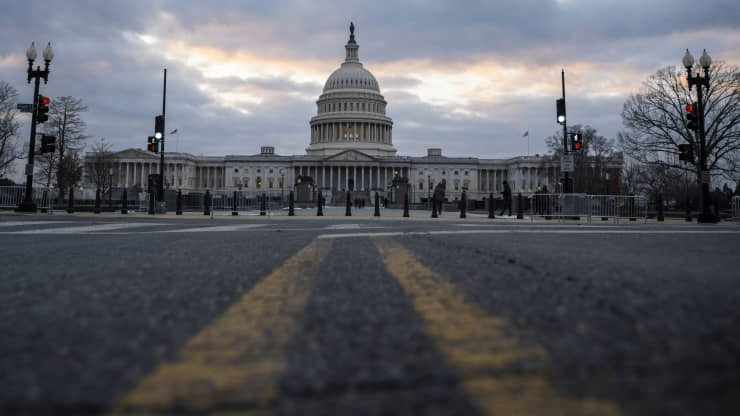Congress reached a deal Sunday on a $900 billion coronavirus relief package, a long-delayed effort to boost an American health-care system and economy buckling under the weight of the pandemic.

Congressional leaders announced agreement on a bill — which will send new federal assistance to households, small businesses and health-care providers for the first time in months and fund the government through Sept. 30 — after days of start-and-stop efforts to finish a deal. They have not yet released text of the more than $2 trillion legislation, which they hope to pass in the next day.
“At long last, we have the bipartisan breakthrough the country has needed,” Senate Majority Leader Mitch McConnell, R-Ky., said on the Senate floor Sunday.
House Speaker Nancy Pelosi, D-Calif., and Senate Minority Leader Chuck Schumer, D-N.Y., called the plan a “package that delivers urgently needed funds to save the lives and livelihoods of the American people as the virus accelerates.” They called the plan inadequate and noted they would soon push for more relief spending after President-elect Joe Biden takes office on Jan. 20.
Lawmakers plan to pass the relief and funding bill on Monday.
To avoid a government shutdown that would start at 12:01 a.m. ET on Monday, Congress approved a one-day spending measure that would keep the lights on until 12:01 a.m. ET on Tuesday. President Donald Trump signed that bill late Sunday evening, according to a tweet from White House spokesman Judd Deere.
The deal on one of the largest rescue bills in U.S. history follows months of sniping on Capitol Hill over how best to fight a once-in-a-century crisis. Democrats moved quickly to pass trillions of dollars more in assistance only two months after Congress passed the more than $2 trillion CARES Act in March. The GOP at first downplayed the need for more aid, then in the summer embraced a more limited approach than Democrats desired.
A new round of help cannot come soon enough for the millions of Americans who have tried to scrape together enough money to afford food and housing during sustained public health restrictions. The coming help will not reverse the closures of small businesses across the country or the poverty and hunger that spread for months while Congress failed to act.
The rescue package was also set to send relief to hospitals, many of which have struggled to keep up with a flood of Covid-19 patients. It also puts $82 billion into schools and colleges, according to Pelosi and Schumer. The package also expands Pell Grants.
The plan directs $25 billion into rental assistance and extends a federal eviction moratorium for an unspecified amount of time, the Democrats said.
The measure aims to strengthen the low-income housing, earned income and child tax credits. It also puts $13 billion into enhanced Supplemental Nutrition Assistance Program benefits.
The plan includes $45 billion for transportation, including $15 billion for airline payroll assistance.
Congress agrees to $900 billion Covid stimulus deal after months of failed negotiations, CNBC, Dec 21